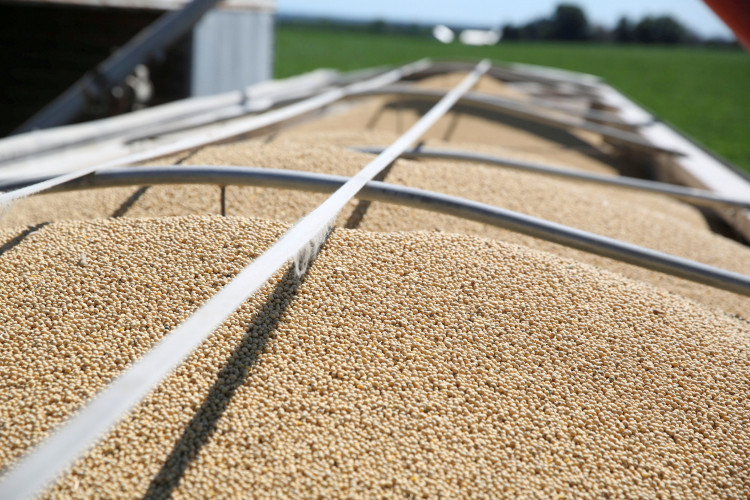U.S. President Donald Trump said China has started buying a "tremendous amount" of soybeans apart from promising to cut auto tariffs soon.
This development has so far been a strong indication that the ceasefire, agreed during a working dinner after the G20 summit in Buenos Aires, has been effective.
China, headed by state-run firms Sinograin and Cofco, has purchased more than 1.5 million tons of soybeans, a people familiar with the deal told Reuters. The products were bought from Cargill Inc, Louis Dreyfus Company and U.S. farmer-owned agriculture CHS Inc.
Another source said the state-owned firms both at average 12 cargoes of soybeans scheduled for shipment from January to March. A separate source added 30 cargoes had already been shipped on Wednesday afternoon.
According to other sources, China has plans to purchase a total of 2.5 million to 3 million tons of soybeans from the U.S.
Meanwhile, people from the U.S. Soybean Export Council have separately confirmed the reports to Bloomberg.
China's purchase of U.S. soybeans has set a more cordial environment for the next rounds of trade negotiations to be held in January after the 90-day truce ended.
The U.S. farming sector was the ones most relieved regarding the development. China is the sector's key consumer, bringing in 60 percent, $12.25 billion, of the sector's total exports in 2017.
The initial purchase is a win-win for both nations involved, according to Li Qiang, chief analyst with Shanghai JC Intelligence Co. It will help reduce the stockpile of U.S. soybeans that have accumulated since the start of the trade war. It will also reduce the shortage of soybeans supplies to China.
Still, there are those who remained pessimistic about the development. One particular contention was that the purchase was made by state-owned firms, an extremely minimal chunk of the market. Private Chinese companies, which make up the larger chunk of the market, would still be hampered by tariffs that remained in place. This could mean that they may have been buying or worse already bought supplies somewhere else.
Early this month, Cargill Inc. said China may have set its eyes in South America where harvest is set to take place in the coming months.
Darin Friedrich, risk management consultant at INTL FCStone Inc. Shanghai office, said China's initial purchase may have eased the lack of supply in the country but is insufficient to reduce stockpiles in the U.S.
Meanwhile, Reuters said the Chinese government green-lighted Unipec to start buying oil from the U.S. again.






